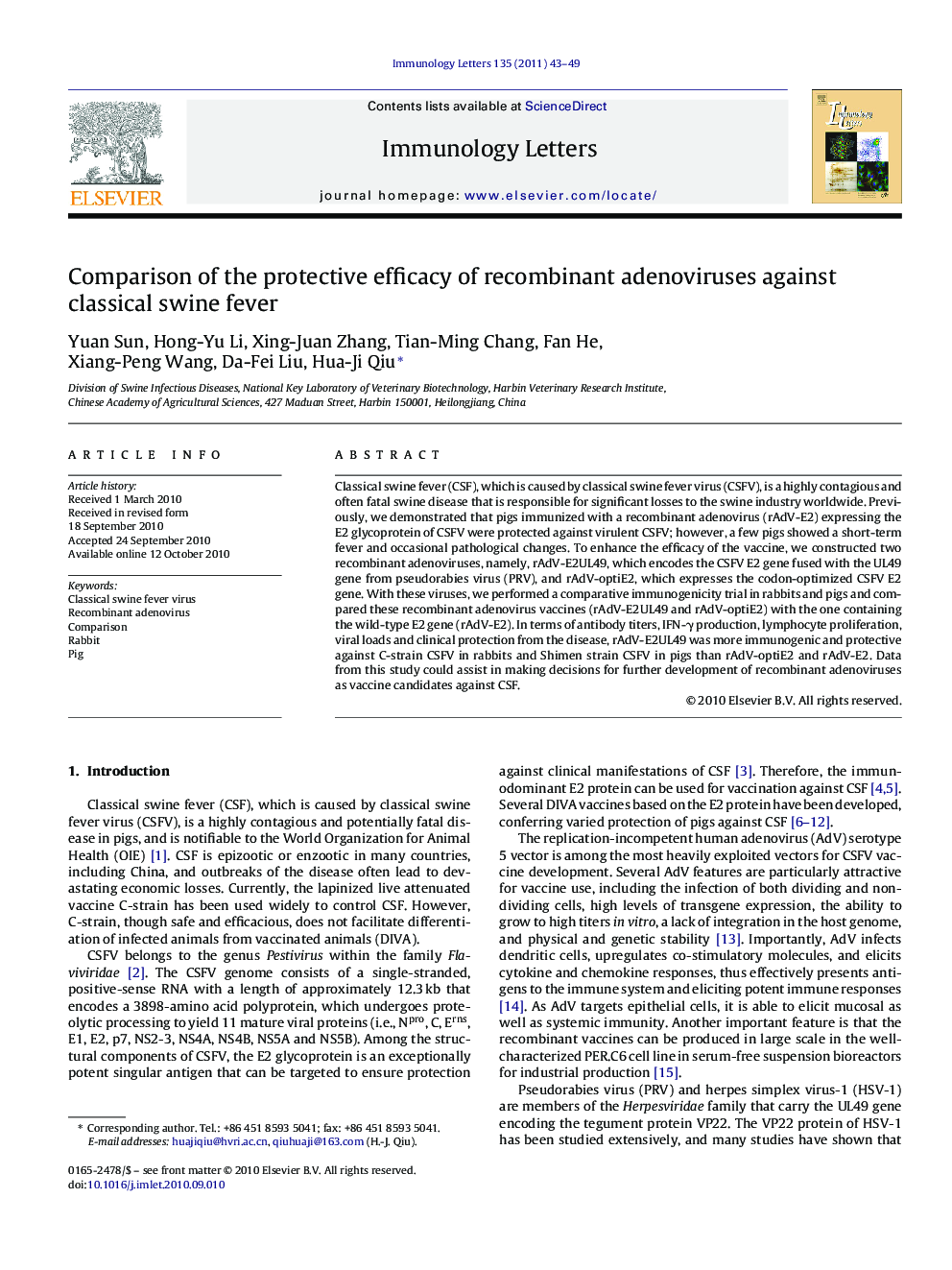| Article ID | Journal | Published Year | Pages | File Type |
|---|---|---|---|---|
| 3355768 | Immunology Letters | 2011 | 7 Pages |
Classical swine fever (CSF), which is caused by classical swine fever virus (CSFV), is a highly contagious and often fatal swine disease that is responsible for significant losses to the swine industry worldwide. Previously, we demonstrated that pigs immunized with a recombinant adenovirus (rAdV-E2) expressing the E2 glycoprotein of CSFV were protected against virulent CSFV; however, a few pigs showed a short-term fever and occasional pathological changes. To enhance the efficacy of the vaccine, we constructed two recombinant adenoviruses, namely, rAdV-E2UL49, which encodes the CSFV E2 gene fused with the UL49 gene from pseudorabies virus (PRV), and rAdV-optiE2, which expresses the codon-optimized CSFV E2 gene. With these viruses, we performed a comparative immunogenicity trial in rabbits and pigs and compared these recombinant adenovirus vaccines (rAdV-E2UL49 and rAdV-optiE2) with the one containing the wild-type E2 gene (rAdV-E2). In terms of antibody titers, IFN-γ production, lymphocyte proliferation, viral loads and clinical protection from the disease, rAdV-E2UL49 was more immunogenic and protective against C-strain CSFV in rabbits and Shimen strain CSFV in pigs than rAdV-optiE2 and rAdV-E2. Data from this study could assist in making decisions for further development of recombinant adenoviruses as vaccine candidates against CSF.
Research highlights▶ The PRV VP22 protein was used to improve the efficacy of the adenovirus-vectored vaccine against CSF. ▶ The linkage of PRV VP22 to CSFV E2 enhanced the immunogenicity of the vaccine. ▶ The VP22-incoporated vaccine conferred better protection from CSF than other adenovirus vaccines.
